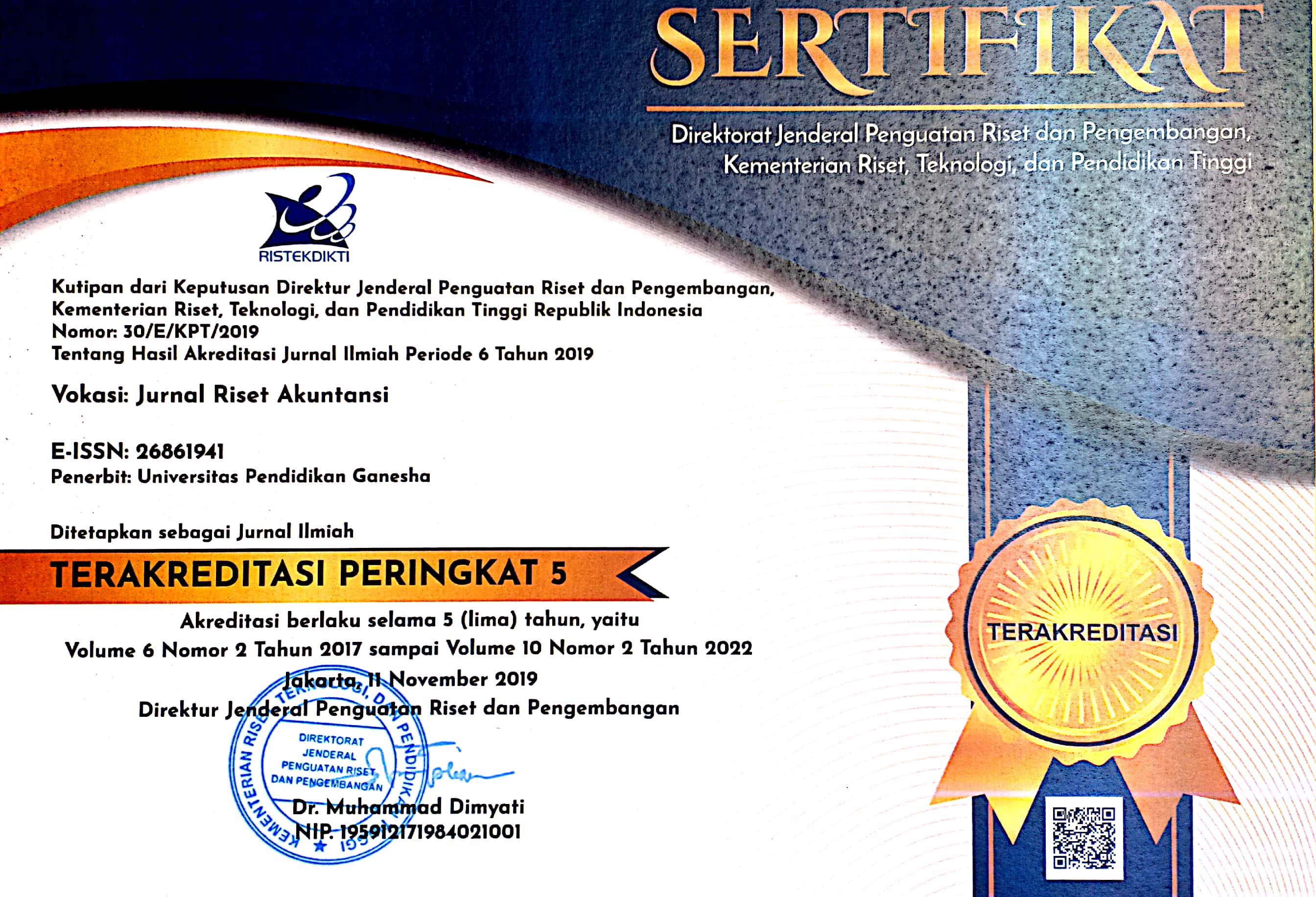Sistem Akuntansi dan Pengelolaan Keuangan pada Bank Sampah Unit (BSU) pada Praktik Operasional dan Efektivitasnya
DOI:
https://doi.org/10.23887/vjra.v13i2.79953Abstract
This qualitative study aims to analyze the implementation of accounting and financial management systems at Bank Sampah, with a case study on operational practices and their effectiveness. Data were collected through observation and interviews to evaluate the types of accounting systems used, the problems encountered in their implementation, and how waste bank managers address these challenges. Findings indicate that waste banks generally use manual or semi-manual accounting systems to manage financial transactions. The problems encountered include failure to record accounting in accordance with the accounting cycle and the absence of financial reports compliant with the SAK EMKM standards, as well as frequent data input errors due to inconsistency among Bima Resik waste bank managers. To address these issues, waste bank managers seek more efficient alternatives in terms of human resources, provide training, and enhance understanding of basic accounting concepts. The implications of this study provide input for Bank Sampah Bima Resik to improve the effectiveness of their accounting systems and financial management to achieve sustainability and operational efficiency goals
Downloads
Published
Issue
Section
License

This work is licensed under a Creative Commons Attribution-NonCommercial-ShareAlike 4.0 International License.









